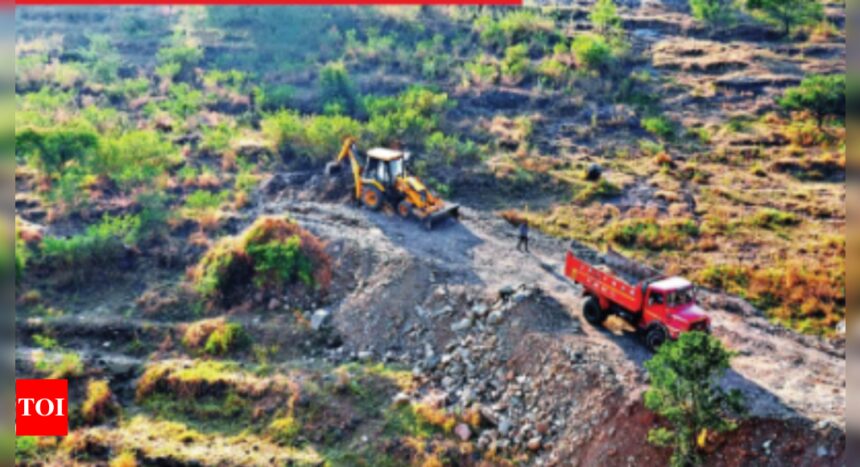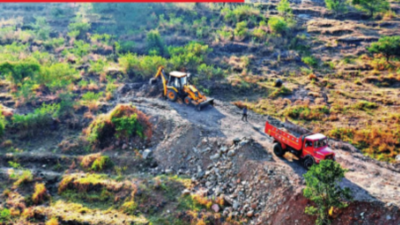
Environmental threats are widespread, affecting vital resources and human well-being globally.
According to IQAir, a global platform for real-time pollution monitoring, 91% of the world’s population lives in places where air quality exceeds World Health Organization (WHO) guideline limits.
The situation in Pune and Pimpri Chinchwad is no different.
The quality of the air that residents in these cities breathe is poor and continues to deteriorate.
Burning garbage, dust particles from vehicles and old factories and exploding firecrackers is becoming increasingly difficult.
Water bodies are highly contaminated – blame it on leaking sewage pipes and littering. In the name of development, hills and trees that can help fight man-made pollution are increasing.
From a dream destination for students and retirees to live, Pune has, over the years, become a bustling industrial hub. The victim is the urban environment, which is only getting worse.
The concentration of PM2.5 in Pune according to IQAir, is 10.2 times the WHO annual air quality guideline value.
“With increasing air pollution, especially during the festive season, we often see respiratory problems, especially those suffering from asthma, colds and coughs.
There is an urgent need to find alternative and green solutions to reduce carbon emissions to protect not only the environment, but also our health,” said Dr Sawan Gandhi, a general practitioner.
Residents say it’s time to hold politicians accountable for disruptive change, ask tough questions and ensure they include an agenda in their election manifesto that helps the environment.
Sewage leakage is a major contributor to water pollution
Our water sources – both surface water from rivers and lakes, and groundwater from springs and wells – are becoming increasingly polluted.
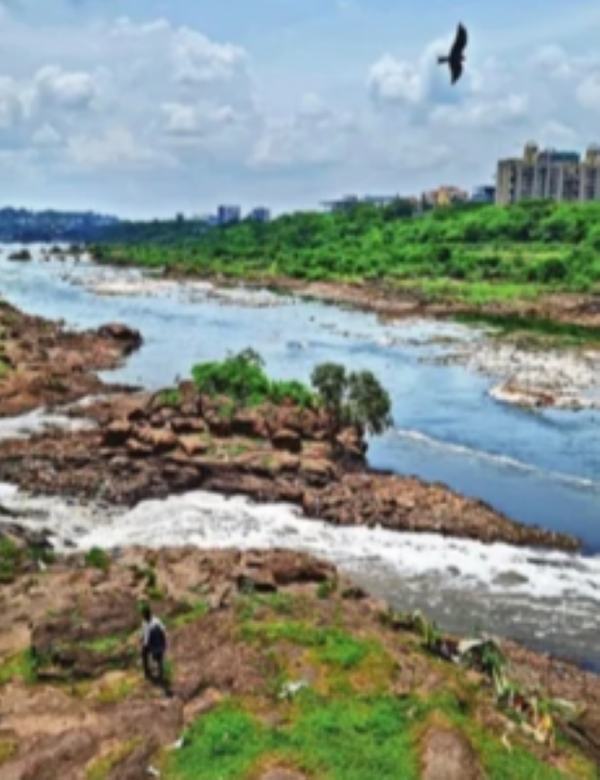
In a recent study conducted by ACWADAM, an NGO focused on groundwater management in India and neighboring regions, 32 water samples were collected from the urban area of Pune. Alarmingly, 31 of these samples, including both surface and soil, were found to be contaminated with biological toxins.
“There are two main problems affecting fresh water resources, especially groundwater : leaks from sewage pipelines and untreated water reach our homes. When sewage leaks into groundwater systems, water quality is significantly compromised.
Solving this requires fixing leaks in mission mode, ensuring sewage and stormwater drains remain separate. This preventive approach will be more effective than reactive measures to tackle water pollution,” said Jairaj Rajguru, senior scientist at ACWADAM.
When it comes to what elected politicians can do, the environment Yadwadkar nest has a different approach. “We have to ask what the voters can do. In the end, the elected representatives represent the people.
We choose them based on what we believe. Our focus must change first. We need to see how we got this planet and how we pass it on to the next generation. A lot of damage is being done, and we need to pay attention,” Yadwadkar to TOI.
Enforcing laws is the only way to prevent noise pollution
The Maharashtra Pollution Control Board (MPCB) has set several directives and, during festivals like the recent Ganeshotsav, has told the police to ensure that decibel levels are kept in check.
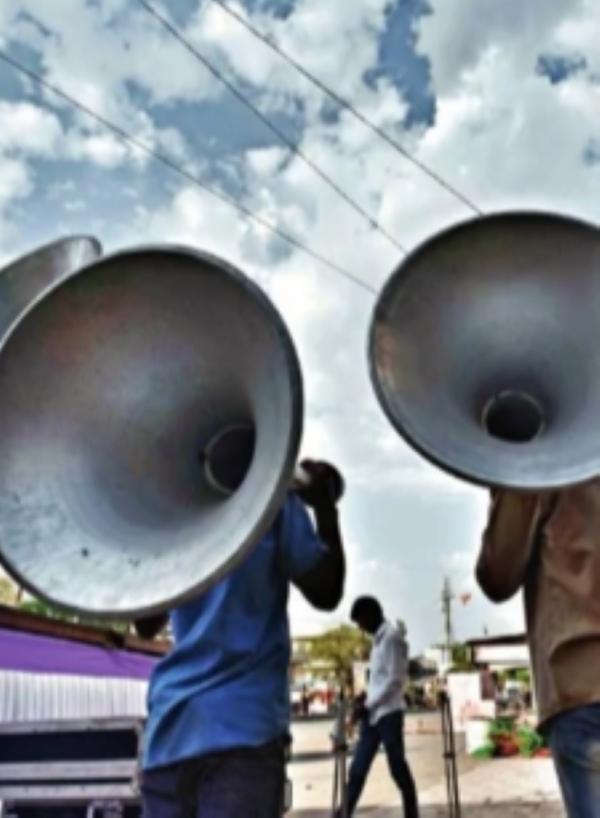
“We are under-implementing these guidelines,” he said Vikrant Latkara software engineer who has been advocating for reducing noise pollution for the past few years.
“Most of them don’t know the guidelines, and what decibels are allowed. Politicians across party lines should come together to curb the increasing noise levels,” said Latkar, adding that an AI-based mechanism is now being used in Bengaluru to monitor honking. “Pune can also consider options.”
Audiologist Dr Kalyani Mandke said politicians are often seen using loudspeakers during promotional events and celebrations.
“Getting them to fight may not work. No one is worried about noise, and no politician is bothered.
It is a disciplinary and social act and must come from within. No one is against celebration. But the line has to be drawn somewhere,” Mandke added.
Pune should learn from Delhi, address air quality issues
Pune has a large number of air quality monitoring stations, and several regulations. But law enforcement is far from standard practice. There is a lot of garbage burning, firecrackers are set off indiscriminately during the festival and the traffic only increases.
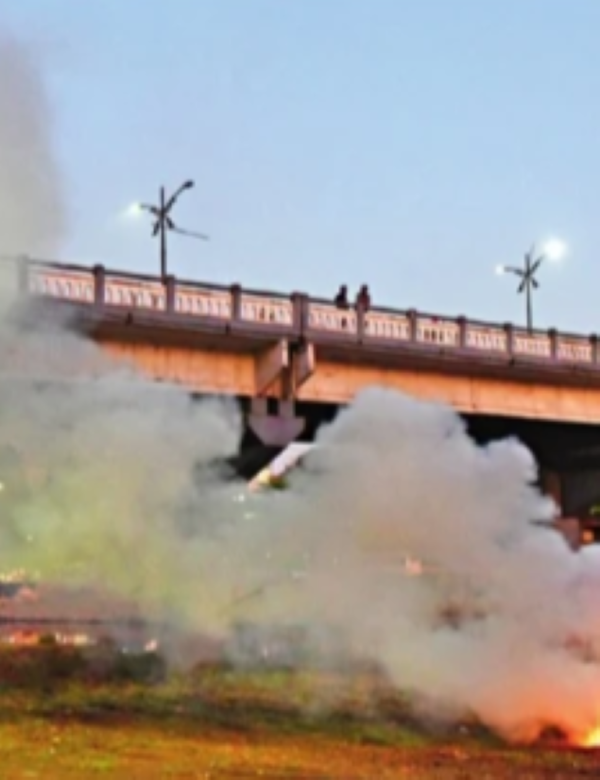
“While the addition of air quality monitoring stations in Pune is a positive step, and the adoption of BS VI norms helps curb emissions from individual vehicles, Pune needs a strong public transport network and better infrastructure for non-motorized transit to reduce dependence on private vehicles, ” he said Sunil Dahiyafounder and principal analyst at Envirocatalysts, a company working to combat air pollution.
“Pune needs to learn from Delhi and tackle pollution from all sectors – transport, industry and waste management – inside a bigger airspace to get cleaner air.
With a comprehensive sectoral approach, Pune has the potential to meet India’s air quality standards and move towards WHO targets over time,” said Dahiya.
Devpt should not come at green cap cost
Economist Ameet Singh, who played a key role in saving some of the trees marked for felling for road widening projects in the city, said there was an urgent need to not only maintain the existing tree cover but also plant more.
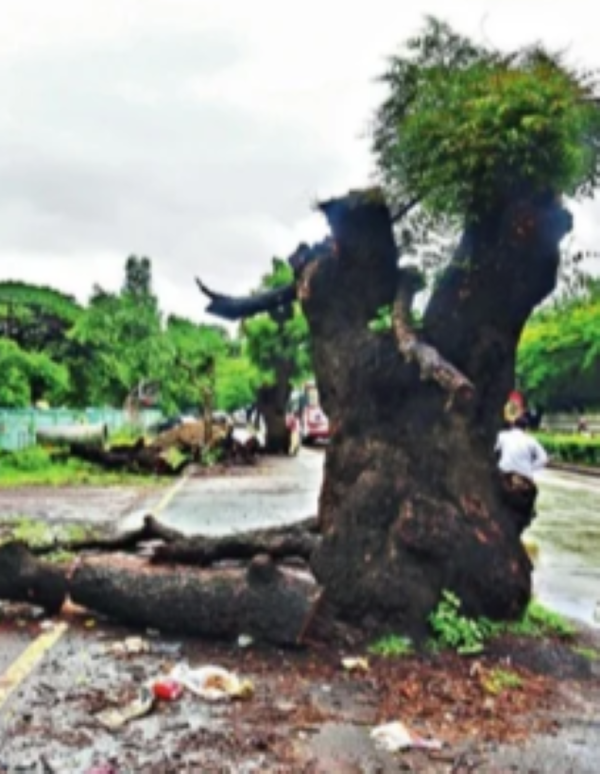
“Air pollution is a serious problem. Pune produces around 2.6 crore tonnes of emissions every year. To offset this, we need more trees. We need more than 100 crore 40-year-old trees to make Pune’s air clean again. That’s 100 trees per person in Pune. Now, there is hardly one tree for every two people,” Singh told TOI.
“Our politicians need to solve this problem and ensure that Pune’s tree cover is not destroyed again. More than 25,000 trees have been lost in the last few years. What we don’t know is that without clean air to breathe, all development is meaningless. Trees are the only our defense against climate change,” he said.
An example of this is the Bal Bharati-Paud Road plan, which proposes a road on the slopes of Vetal Tekdi—the lungs of the city of Pune—to reduce traffic on Law College Road. Sumita Kale Vetal Tekdi Bachav Kruti Samiti said that projects that are damaging to the environment should be scrapped.
“Tekdi is not only a green haven but also a major groundwater source that provides quality water to thousands of Pune residents. By destroying hills for roads, we will only add to the city’s pollution burden and increase traffic congestion at intersections. We have to keep what we have,” Kale said.

